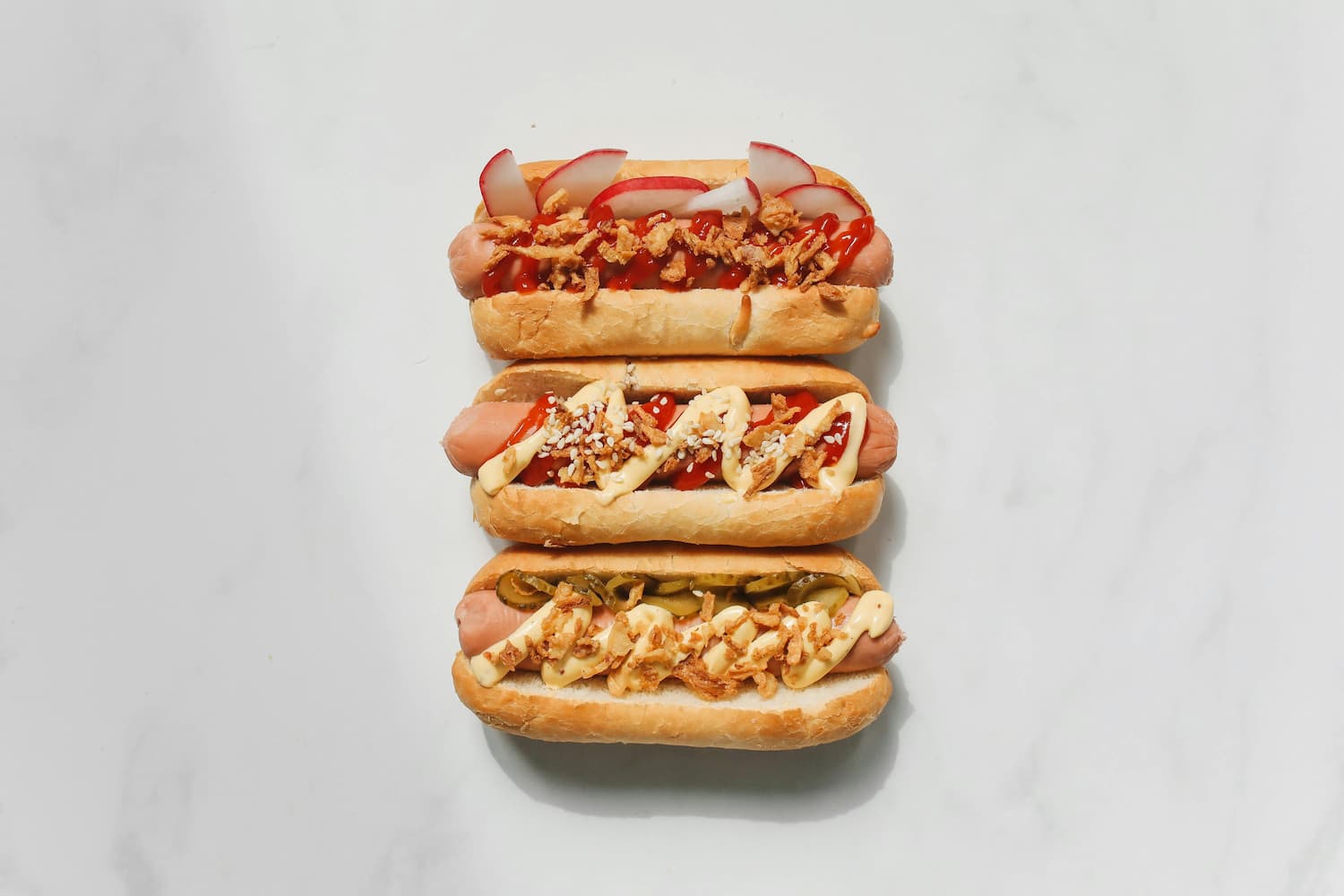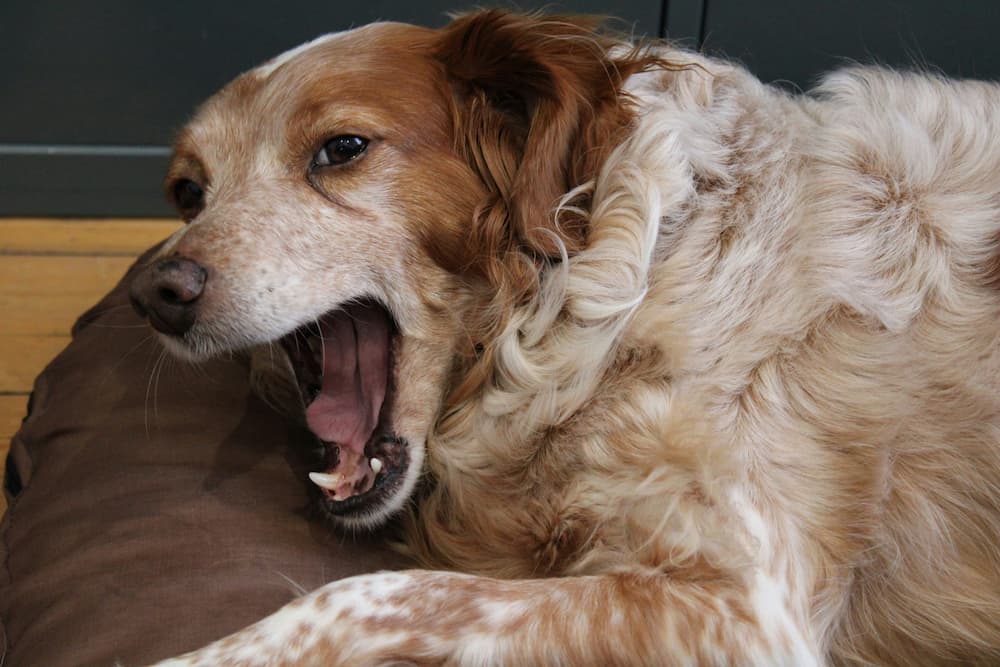If your dog has frequent loose stools, blood, or mucus in the feces, it’s understandable to worry. Many pet owners encounter this problem, which is often due to colitis in dogs. Colitis, simply put, is an inflammation of the colon (large intestine) that can lead to urgent, painful bowel movements. It can strike any dog, regardless of age or breed, and often comes on suddenly. In this article, we’ll explore everything you need to know about dog colitis, from recognizing the signs to effective treatments and prevention strategies. Let’s dive in and get your pup back to their happy, healthy self.

What Is Colitis in Dogs?
Colitis (short for colonic inflammation) is the name for inflammation of a dog’s large intestine (colon). In healthy dogs, the colon’s job is to absorb water from digested food and store stool until it’s eliminated. When the colon becomes inflamed (due to infection, allergy, stress, etc.), it can’t absorb water well, so dogs pass loose, watery stool. Veterinarians often describe this as large bowel diarrhea.
Colitis can be acute (sudden onset, lasting a few days) or chronic (weeks or longer). Acute colitis often resolves quickly, sometimes on its own, while chronic colitis may require further testing and long-term management.It’s not a disease in itself but rather a symptom or response to various underlying issues like infections, parasites, or even stress.
Dogs of any breed can get colitis. Young Boxers and French Bulldogs are prone to a specific type called granulomatous colitis, but overall any dog can develop colitis. Pet owners sometimes refer to it as a colitis disease in dogs, highlighting that it’s a gastrointestinal disorder with many causes.Understanding that colitis is a sign of an problem can help you and your vet address the root cause effectively.
What Are the Signs of Colitis in Dogs?
Recognizing the signs of colitis early can help you seek treatment faster, reducing your dog’s discomfort. Here are the most common symptoms to watch for:
Frequent, Small Amounts of Diarrhea: Often described as “frequent, small volumes of semi-formed liquid feces,” this is a classic sign. Your dog might ask to go out more often but pass only small amounts each time.
Straining During Defecation: Dogs with colitis may strain painfully (tenesmus) or show signs of discomfort when trying to poop.
Mucus or Blood in Stool: Inflammation can cause the colon to produce excess mucus, and you might see fresh blood (hematochezia) in the stool due to irritated colon walls.
Urgent Need to Defecate: Your dog might suddenly rush to go outside or have accidents indoors due to the urgency.
Abdominal Discomfort or Pain: Some dogs show signs of pain, such as whining, restlessness, or lying with their abdomen pressed against the cool floor.
Possible vomiting: Vomiting is less common in colitis, but it can occur (especially if the stomach is irritated). Not all dogs vomit; often it’s just diarrhea.
Other General Signs: In more severe or chronic cases, you might notice lethargy, decreased appetite, weight loss, or even dehydration due to fluid loss from persistent diarrhea.
Note: Not all diarrhea is caused by colitis. If your dog is vomiting, has a fever, or shows signs of severe illness (like extreme lethargy), it could involve more of the gastrointestinal tract or a different issue altogether, such as a viral infection. Always consult your vet for a proper diagnosis.

What Causes Colitis in Dogs?
Colitis has many possible triggers. Often it occurs when something irritates the colon or upsets the immune system in the gut. Common causes include:
Stress (Colitis in Dogs from Stress): Psychological stress can trigger “stress colitis.” Events like boarding, moving, a new family member, or even loud noises (thunderstorms, fireworks) can lead to stress-induced colitis. This is often because stress can alter gut motility and the local immune response.
Dietary Indiscretion: Eating something they shouldn’t—like spoiled food, garbage, or a sudden change in diet—can irritate the colon. Food allergies or sensitivities can also trigger chronic colitis.
Bacterial Infections: Pathogens like Salmonella, Clostridium, or E. coli can invade the colon and cause infection.
Parasites: Worms like whipworms, roundworms, or protozoa such as Giardia are frequent causes of intestinal inflammation.
Food allergies or intolerances: Some dogs develop colitis due to an allergic reaction to a food protein. This is a type of allergic colitis, often from ingredients like chicken, beef, dairy, or wheat. Chronic colitis can come and go because of food hypersensitivity. In these cases, a novel protein diet is needed.
Inflammatory bowel disease (IBD): This is a group of immune-mediated conditions where the dog’s immune system reacts to intestinal contents, causing chronic inflammation. IBD often involves the colon (and sometimes small intestine) and can appear as recurrent colitis. It usually requires long-term management.
Other causes: Less commonly, colitis can be caused by colon trauma, cancer, parasites that invade the gut wall, or even chronic ingestion of certain toxins.
Some dogs may be more predisposed to colitis. For instance, German Shepherds, French Bulldogs, Miniature Schnauzers, and Labradors are noted to have a higher risk for inflammatory bowel disease, which can include colitis.
How Do Vets Diagnose Colitis in Dogs?
Diagnosing colitis involves a combination of history, exam, and tests. Your vet will first gather information about your dog’s symptoms and habits. It helps to bring a fresh stool sample when visiting. Key steps include:
History & physical exam: The vet will ask about your dog’s diet, environment, and the characteristics of the diarrhea. They will feel your dog’s abdomen and do a rectal check to identify pain or masses. They may specifically ask if your dog is straining, how often, and if there is blood or mucus.
Stool (fecal) analysis: A core test is checking the feces for parasites, bacteria, or blood. Since intestinal parasites or bacterial infections can cause colitis, this test is routine. (Tip: bring a fresh stool sample to your appointment.)
Blood and urine tests: Vets often run blood work to check overall health, hydration, and to rule out other organ issues (kidney, liver, pancreas). Blood tests can also look for inflammation markers.
Imaging: X-rays or abdominal ultrasound may be used to view the intestines and abdomen. These help detect foreign objects, masses, blockages, or thickening of the colon wall.
Diet trial: Especially in chronic cases, vets often recommend an elimination diet trial. Your dog is fed a special veterinary diet (hypoallergenic or novel protein) for several weeks to see if colitis resolves. This helps identify food-related colitis.
Advanced diagnostics: If the diarrhea is severe or unresponsive, a colonoscopy (endoscopic exam of the colon) may be done. Under anesthesia, a tiny camera inspects the colon and tissue samples (biopsies) are taken. Biopsy results can distinguish colitis from other diseases like tumors or IBD.
In summary, vets diagnose colitis by combining the dog’s history and signs with targeted tests. The goal is twofold: confirm inflammation of the colon and rule out other causes of diarrhea (like parasites, infections, or intestinal lesions). A thorough workup helps ensure the correct treatment.

How Is Colitis in Dogs Treated and Managed?
Treatment for colitis in dogs is tailored to the underlying cause and the severity of the condition. The primary goals are to resolve inflammation, manage symptoms, and restore your dog’s comfort and health.
1. Dietary Management (The First Line of Defense)
Dietary change is often the most critical step:
Easy-to-Digest Diets: Your vet may recommend a bland diet for a few days, such as boiled chicken or lean ground turkey with white rice or pumpkin.
High-Fiber or Low-Residue Diets: Depending on the case, a high-fiber diet can help add bulk to stools, while a low-residue diet might be prescribed to reduce the material passing through the colon.
Novel Protein or Hydrolyzed Diets: For dogs with suspected food allergies, switching to a novel protein source (one your dog has never eaten, like duck or venison) or a hydrolyzed diet (where proteins are broken down to be non-allergenic) can be very effective.
Probiotics: Supplements containing beneficial bacteria can help restore a healthy balance of gut flora.
2. Medications
Medications are used based on the specific cause:
Antibiotics: Drugs like metronidazole may be prescribed for certain bacterial infections or for their anti-inflammatory properties in the gut, though they are not always necessary.
Anti-Parasitics: If parasites are the cause, specific dewormers like fenbendazole (for whipworms) or antiprotozoals (for Giardia) will be used.
Anti-Inflammatories: For immune-mediated inflammation like IBD, vets may prescribe anti-inflammatory drugs such as corticosteroids (e.g., prednisone) to suppress the immune response and reduce inflammation.
3. Supportive Care
Fluid Therapy: If your dog is dehydrated from severe diarrhea, subcutaneous or intravenous fluids may be administered.
Stress Reduction: Since stress can be a major trigger, creating a calm environment is vital. In some cases, vets might recommend anti-anxiety medications or supplements for dogs with colitis in dogs from stress.
4. Management of Chronic Colitis
For chronic conditions, long-term colitis in dogs treatment involves:
Strict adherence to a prescribed diet.
Regular follow-ups with your vet to monitor the condition.
Possible ongoing medication adjusted based on symptoms.
Most dogs with acute colitis respond very well to treatment within a few days. Chronic cases require patience and consistent management to keep flare-ups under control.
How to Prevent Colitis in Dogs?
It’s not always possible to prevent colitis entirely, but you can take steps to reduce risk:
Stable, quality diet: Feed a consistent, high-quality diet and avoid sudden changes. When switching foods, do it gradually over a week. Avoid feeding your dog rich table scraps, fatty foods, or garbage. Dogs should not have access to trash cans or outdoor poop.
Prevent toxins and pathogens: Keep your dog’s vaccinations (like for parvovirus) up to date, and use parasite prevention. Regularly deworm your dog as recommended (especially important for puppies). This reduces the chance of worm-associated colitis. Make sure your dog cannot access contaminated water or sick animals.
Avoid Dietary Indiscretion: Keep garbage secured and discourage your dog from scavenging on walks or in the yard. Be mindful of what they can access.
Minimize stress: Since stress is a common trigger, try to keep your dog’s routine consistent and provide a calm environment. When travel or boarding is unavoidable, give extra comfort (favorite toys, a piece of clothing with your scent) and consider anti-anxiety measures if your vet suggests them.
Hydration: Always provide clean, fresh water. Proper hydration helps the digestive system function well.
Manage chronic cases: If your dog has a history of colitis, follow your vet’s preventive plan: this may include feeding a special veterinary diet (often a high-fiber or novel-protein formula), avoiding treats or people-food (even dental chews can irritate sensitive guts), and bringing your dog in for regular check-ups. Avoid unapproved supplements or medications.
By taking these precautions and paying attention to your dog’s health, you can reduce colitis flare-ups. Remember, because colitis in dogs from stress is common, a little extra calm and consistency in your dog’s life can make a big difference.

Conclusion
Colitis in dogs is a treatable condition, but it can be alarming for any pet owner. The good news is that with prompt care, most dogs recover quickly. Watch for signs like frequent soft stools, urgency, or blood/mucus – these point to colonic inflammation. Veterinary diagnosis (tests and exams) will pinpoint the cause, and treatment usually involves diet changes, supplements, and medications to calm the gut. The prognosis is generally excellent. By working closely with your vet on treatment and prevention, you’ll help your dog feel better faster. Stay observant and proactive, and your dog can lead a normal, happy life even with colitis.
FAQ
How can I tell if my dog’s diarrhea is from colitis or something else?
Colitis typically causes frequent, small amounts of diarrhea that often contains mucus or fresh blood. Dogs may strain urgently. In contrast, diarrhea from small intestinal issues (like enteritis) usually involves large volumes of watery stool at one time, may be darker (melena), and is more often accompanied by vomiting and weight loss. However, only a veterinarian can provide a definitive diagnosis.
Can stress alone trigger colitis in dogs?
Yes, absolutely. Stress is a very common trigger for acute colitis in dogs. Events like boarding, moving, thunderstorms, or changes in the household routine can lead to colitis in dogs from stress. This is often because stress hormones can disrupt the normal function and bacterial balance in the colon.If
What diet is best for dogs with recurring colitis?
Dogs with chronic colitis often do well on a special diet prescribed by the vet. This usually means a high-fiber or easily digestible diet. Many vets recommend a prescription gastrointestinal diet (low-fat, high-fiber) or a home-cooked bland diet (like boiled chicken and rice) during flares. If a food allergy is suspected, an elimination diet using a novel protein (e.g. duck, venison) or a hydrolyzed protein formula may be needed. Always switch foods gradually to avoid upset, and follow your vet’s guidance on feeding schedules and treats.
Are dogs in pain with colitis?
Yes, dogs with colitis can experience abdominal discomfort or pain. You might notice signs like restlessness, whining, a tense abdomen, or assuming a stretched-out “praying” position with their front legs down. Straining to defecate (tenesmus) is also uncomfortable. If you suspect your dog is in pain, consult your vet promptly.
How long does a dog live with colitis?
Colitis itself is not a fatal condition, and with proper management, most dogs with colitis live a full, normal life expectancy. The prognosis is excellent for acute colitis. Even for chronic conditions like Inflammatory Bowel Disease (IBD), which requires ongoing management, dogs can live happily for many years with appropriate diet, medication, and regular veterinary care.If
Visited 1 times, 1 visit(s) today






